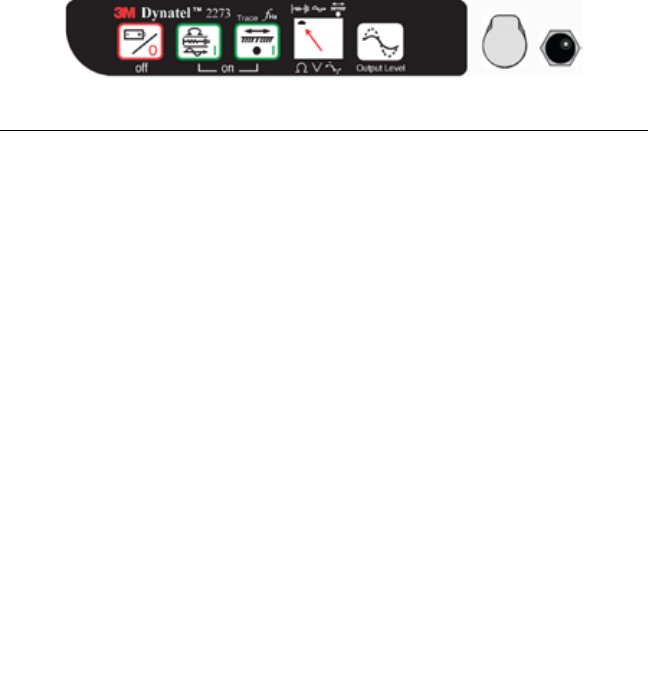
78-8130-6150-0 Rev G 37
5. Press on: Ohm-meter/Fault Locate/Tone [T-2] to turn the transmitter on and place
the transmitter in Ohm-meter mode.
− The resistance of the fault will be displayed in ohms on the transmitter Digital
Display [T-4].
− Resistance less than 50KΩ = Significant fault exists
− Resistance 50KΩ to 1.0MΩ = High resistance fault exists (May or may not
cause problems yet, but gets worse with time.)
− Resistance greater than 1.0MΩ = No significant fault exists
Note: The fault locating limit is 2.0MΩ, although the transmitter's ohm-meter mode
can display a fault resistance up to 10MΩ.
− Note: The fault locating limit is 2.0MΩ, although the transmitter's ohm-meter
mode can display a fault resistance up to 10MΩ.
6. Press on: Ohm-meter/Fault Locate/Tone [T-2] again, to select Fault Locate mode.
− The Indicator Flag will turn on under the fault icon in the Digital Display [T-4]
(as shown in the illustration below)
B. Pinpointing the Buried Fault
1. Connect the 3M
™
Earth Contact Frame (also known as an A-Frame) to the External
Jack [14] ([13] on 2250M) of the receiver using the earth frame cable (4 ft. (1.2m)
cable).
2. Press On/Off (Power) [1] to power on the receiver. The receiver display screen will
display "Fault Calibrating" for about 5 seconds.
3. Press Locate/OK [5].
4. Press Fault [SK] to select Fault mode.
5. Hold the receiver in one hand and the Earth Contact Frame in the other with the
solid green-banded leg of the frame toward the test section. Near the location of
the ground rod (about one Earth Contact Frame width away from the ground rod,
slightly to the side and towards the faulted cable), insert the Earth Contact Frame
probes fully into the ground in line with the target path.
6. Press Ref [SK] to record the fault level reference signal. The signal level will be
recorded in the box above Ref [SK] on the display. This reference indicates the
Signal Strength [10] level at the ground rod. When the operator reaches the major
fault location, the Signal Strength [10] indicated on the receiver will be very close
(within 12dB) to this reference signal level.


















